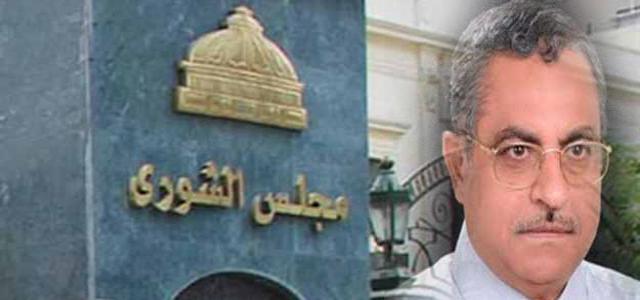CAIRO: Political activist and deputy head of Al-Ahram Center for Political and Strategic Studies Mohamed Al-Sayed Saeed died at Dar El-Fouad Hospital Saturday at the age of 59.
Saeed had been in Paris for the last six months being treated for cancer courtesy of the French government but returned to Cairo a week ago when his condition deteriorated.
A native of Port Said, where he was buried Sunday, Saeed was one of the founders of the Egyptian Organization for Human Rights (EOHR) as well as a founding member of the Kefaya Movement for Change.
More recently he was a co-founder and chief editor of the leftist Al-Badeel newspaper until his resignation in October 2008. He was also a noted researcher and writer.
Saeed was part of a group of human rights activists who were arrested and tortured in 1989 after releasing an EOHR statement in solidarity with striking steel workers who were holding sit-ins inside their factories. The statement had criticized security forces for opening fire on the workers.
EOHR head Hafez Abu Saeda told Daily News Egypt, “He is the one who implemented the method in which the organization works, in how we do our campaigns, and until today we follow the guidelines he set.
Regarding the arrests in 1989 he said, “That was the first test for the organization and he was the one who wrote the statement and that’s why he was tortured the most in Torah Prison. However, the campaign was successful and reached the international stage.
Abu Saeda did not feel that his position within the state-run Al-Ahram made Saeed compromise on his ideals and goals.
“A lot of the researchers at Al-Ahram Center for Political and Strategic Studies have independence from the state and Al-Ahram as an institution, he said. “[Saeed] was biased towards human rights and the disenfranchised and he always veered towards this even if it meant going against Al -Ahram and he paid for this by being passed over for numerous high positions.
Saeed graduated from Cairo University in 1972 with a degree in political science and attained his PhD in international relations from the US in 1984.
His colleague from Al-Ahram Center for Political and Strategic Studies Nabil Abdel-Fatah told Daily News Egypt that Saeed wrote about issues that were unheard of in the 1970s.
“He was one of the most important Egyptian thinkers in the 1970s and he tackled some of the new ideas in international relations then, such as his research on multinational corporations and his doctoral thesis on handling ethnic disputes in Africa as well as his efforts in liberalism within Egypt, he said.
“He freed the Egyptian left from some of its wooden language and was a pioneer in rights activism in Egypt, which he paid for with his freedom during the reign of Interior Minister Zaki Badr, Abdel-Fatah added. “He was also a great friend who helped young researchers any way he could.

